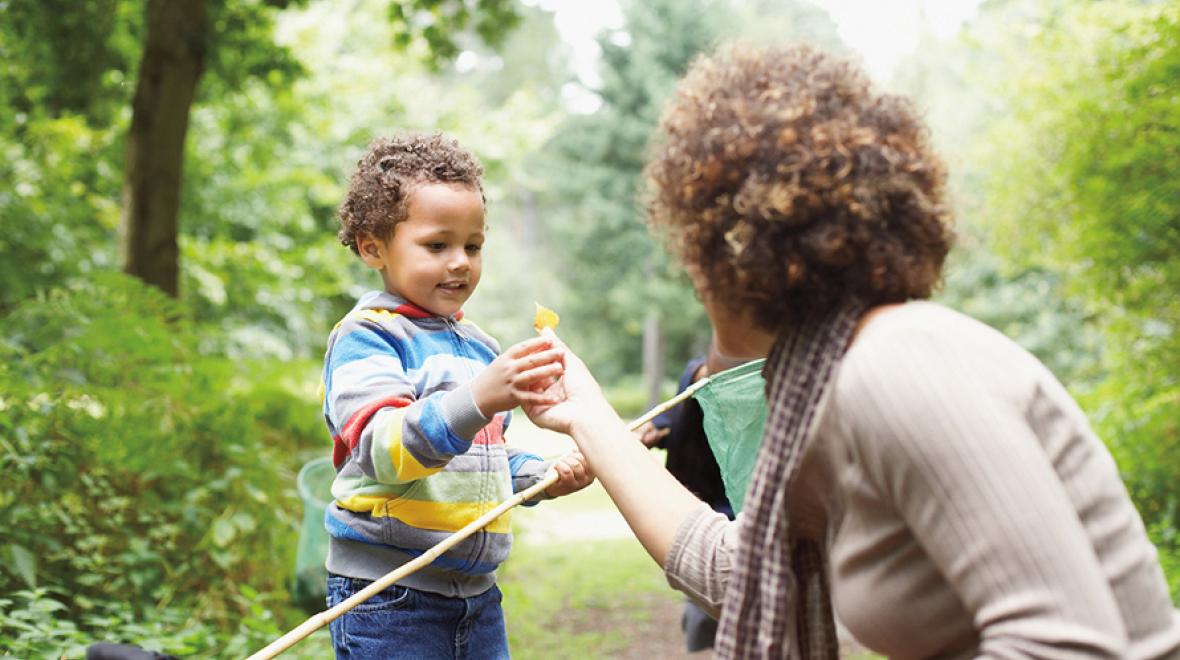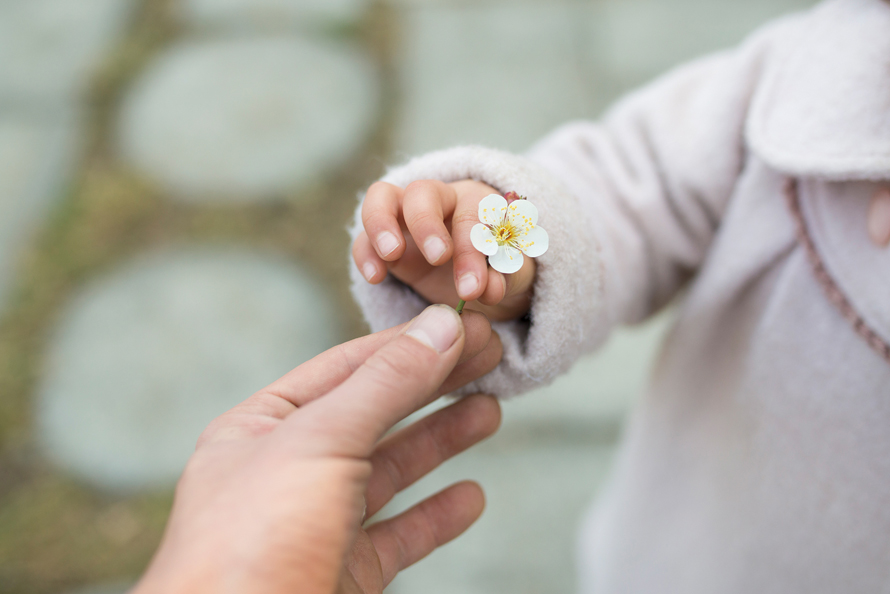
When you think about gratitude, do you picture yourself seated at a festive table on a Thursday evening in late November, rattling off an obligatory list of things you’re grateful for? This year, instead of letting that thankful spirit fizzle out like an open bottle of bubbly, why not keep it going?
Research shows that it pays to make appreciation a part of every single day. Adopting an attitude of gratitude yields numerous benefits to our physical and mental health, including stress reduction and increased immunity. Gratefulness also sharpens other positive emotions, such as empathy, compassion and kindness, all of which dynamically affect our overall wellness and satisfaction with life.
The best part? It’s an easy habit to kick off. Practicing gratitude can be as simple as acknowledging and actively reflecting on what we’re grateful for, and it’s never too early (or late) to start. While there’s no one-size-fits-all approach to gratitude, we’ve compiled some helpful advice from experts on ways we can foster appreciation in our own family unit. (Hint: It starts with us.)
Teach thoughtfulness and model thankfulness.
As parents, we yearn for our children to reach their full potential and lead happy (if not idyllic) lives. Though gratitude is a key element to successfully achieving goals in life, it’s not an innate quality. Rather, it’s an attribute we must allow to take root early on, and then provide a steady stream of nourishment to help it flourish.
“Think about gratitude as a skill and not some kind of inborn personality trait kids are either good at or not good at. … We should think about it like we’re teaching our kids a new language; some of them are going to be more inclined. Some kids are naturally more appreciative and optimistic, in the same way that some kids will pick up a new language faster than others. But everybody needs a basic structure to learn the language. They need practice. They need to be taught the grammar and the basic vocabulary around it all,” says Christine Carter, Ph.D., a senior fellow at the Greater Good Science Center and author of “Raising Happiness: 10 Simple Steps to More Joyful Kids and Happier Parents.”
Make room in your schedule for gratitude whenever you are able: during a meal, at bedtime or even in the car. To fully experience the benefits a gratitude practice provides, make it a routine, just as you would diet and exercise, says Giacomo Bono, Ph.D., an associate professor at California State University, Dominguez Hills, and co-author of “Making Grateful Kids: The Science of Building Character.” “Gratitude is a complex social behavior we have to work at; it’s a very individualized process. Sometimes we model different things than what we say, so we have to be careful in that way, because our children are paying attention. What we do and show our children and how we rise up in difficult moments to validate what they’re going through models social support.”
Exposure to scarcity and adversity experienced by others encourages introspection.
When our kids are young, it’s natural to want to keep them in a bubble, safeguarding them from the pain and suffering of others, but helping those in need fosters compassion and instills appreciation for the gifts and blessings we are fortunate to have. What’s more, our kids develop an understanding that nothing is owed to them.
No matter how old your kids are, there’s always a way they can help others. “Start doing it really young. I called a local group and said, ‘I have really little kids. What’s something we can do to help?’ A few weeks later, a volunteer coordinator called and asked if we could make a birthday cake. There’s a local group that tracks people who are living on the streets long-term and knows when their birthdays are, so these are kids who would not have any other birthday celebrations. It’s a fun way to give back, and it made my kids realize, ‘I’m not entitled to anything. I’m lucky to even have a birthday celebration,’” says Carter.
As kids get older, speak openly with them about the disparities and social issues that exist in the world. “Have conversations with them about how the way society works for us is often different than the way it works for others. There are a lot of families who are struggling to survive. Being able to understand that people have a different experience from what we experience is an essential part of identity work, and it’s hard, but it helps them practice empathy,” says Bono.
Devastation resulting from natural disasters presents us with a remarkable opportunity to teach our kids the power of community support. “We’ve had brutal fire seasons the last four years out here in California, back to back. In 2017, the school our girls go to was used as an evacuation center. We brought supplies, food and other things for people who were displaced. Even though our own house didn’t burn down, [the girls] got a chance to see real people who had this very real experience, and learned that if you have something, you can share it with people who may not have it,” says Mike Robbins, author of “Focus on the Good Stuff: The Power of Appreciation.”
Exposure to others’ adversity isn’t easy, but it allows our children to gain the perspective they need to appreciate what they have — along with the inspiration to pay it forward.

Deepen gratitude by reflecting on intent.
Little things like smiling, expressing our thanks and reaching out to check in on a loved one go a long way, but even these simple acts are often overlooked, and many of us can’t remember the last time our kids actually wrote out a thank-you note. Still, it’s a meaningful endeavor that helps encourage appreciation, says Carter. “Instead of having my kids say, ‘Thank you for the X material thing you gave me,’ I’ve always had them write, ‘One thing I appreciate about you is … ’ It helps to foster a different sort of gratitude that’s more meaningful by turning their appreciation to the person. One of my kids recently said to my aunt, ‘I appreciate that every time I look on Instagram, you’re the first person to like my post.’”
Parents can expand grateful thinking by helping kids acknowledge the purpose behind the gifts they receive, Bono says. “Three benefit appraisals are particularly useful when good things happen: 1) What is the personal value, or intent, of the gift? Acts of kindness are done with intention and reflecting on that deepens our gratitude. 2) What is the personal cost to the benefactor? Thinking about the financial cost as well as the time and effort put into a gift will help us gain a greater appreciation for the person. 3) What is the prosocial intention of the benefactor? The gift benefits us in some way — the benefactor believes in us and they see something special within us they hope to grow.”
Actively encourage your children to think about the intention, benefit and cost of a gift to bolster their appreciation of people who show them kindnesses.
Social and emotional growth foster appreciation.
The development of strong social ties is vital to our children’s happiness and ability to experience gratitude. During tough times, persuade your kids to connect with a peer who’s also struggling. “Ask your kids to think about what they have that other kids do not have. Can they look into their immediate environment to see who needs support? Who seems to be really struggling in their Zoom classroom? Who’s not engaged, who’s not showing up? Reach out to that kid if it seems like they’re feeling lonely. Instead of dwelling on the fact that you feel isolated, look for someone else who seems isolated — there’s nothing to lose by reaching out,” says Carter.
As children become adolescents, parents must step back, allowing their kids to take the lead. Through introspection, our children discover their true purpose and develop into autonomous individuals, Bono says. “Young people want to serve, and they want to contribute to the world. We need to be able to harness and support that, to give voice to our children and provide them with opportunities to blossom, to expand their thinking and help them grow and practice empathy. Care about whatever it is they care about. Being curious about things is the start of blossoming into our purpose,” says Bono.
Teaching your kids how to positively reframe any situation they find themselves in is vital. “One question we ask a lot of times at our house, instead of ‘Why is this happening to me,’ is ‘Why is this happening for me?’ What’s the opportunity here? Yes, this might be hard. This might be sad. This might be disappointing. You know, you get a bad grade on the test or you don’t get to do the thing you want to do or you don’t think it’s fair. But inquire into what’s the opportunity here to learn and to grow, which is a form of gratitude in a way, taking a deeper inventory into how might this make me stronger and benefit me at some point, even if I can’t see it now,” says Robbins.
Nudging our children to rely upon social connections and strengthen their friendships will help them become kinder, more caring and more grateful individuals.
Embrace gratitude when life is hard.
During times like the present, when our lives are heavy with stress and worry, we may have to dig a little deeper to find that silver lining. “We need to shine our attention on the positives, especially when there’s so much that’s negative all around us. We’re all sad right now and our kids are feeling it deeply; they’re allowed to be angry, and we have to let them talk about their emotions, but then shift to the positives,” says Carter.
Lockdown is stressful, and we all have cabin fever, but it’s also a unique opportunity to be together as a family. “This is the most amount of time my wife and I are going to spend with our girls, probably ever. As stressful and as challenging as it is right now, I’m trying to enjoy it and be as grateful as I can. It’s beautiful and it’s brutal at the same time. I keep saying to my girls, ‘Pay attention right now, because you’re going to be telling this story for the rest of your lives. What’s the story you want to tell, when this is all over, about how you showed up and how this experience was for you, because we can’t actually control the circumstances of the pandemic, but we can absolutely control our attitude and how we show up during it,” says Robbins.
With every act of kindness, consideration and appreciation we bestow upon others, we silently inspire our kids to follow suit, so go and do some good in the world. Shine a spotlight on the things that bring you joy every day, no matter how small, because there’s always beauty and grace to be found; we just have to keep our eyes open. Encourage your kids to spread their wings — believe in them, love them and be their rock. Even when life knocks us down, there’s always something to be thankful for. Gratitude awaits.











